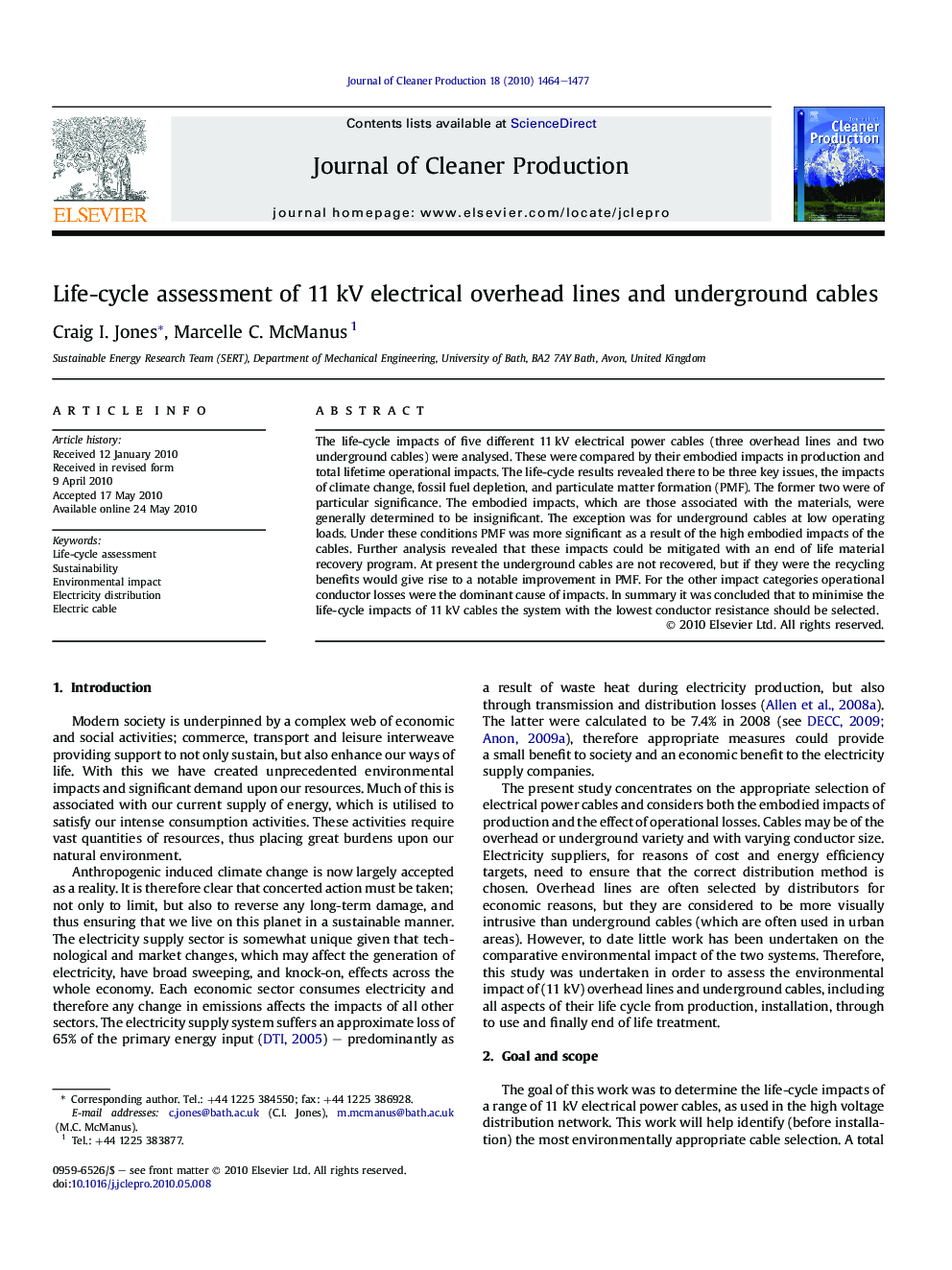| Article ID | Journal | Published Year | Pages | File Type |
|---|---|---|---|---|
| 1746502 | Journal of Cleaner Production | 2010 | 14 Pages |
The life-cycle impacts of five different 11 kV electrical power cables (three overhead lines and two underground cables) were analysed. These were compared by their embodied impacts in production and total lifetime operational impacts. The life-cycle results revealed there to be three key issues, the impacts of climate change, fossil fuel depletion, and particulate matter formation (PMF). The former two were of particular significance. The embodied impacts, which are those associated with the materials, were generally determined to be insignificant. The exception was for underground cables at low operating loads. Under these conditions PMF was more significant as a result of the high embodied impacts of the cables. Further analysis revealed that these impacts could be mitigated with an end of life material recovery program. At present the underground cables are not recovered, but if they were the recycling benefits would give rise to a notable improvement in PMF. For the other impact categories operational conductor losses were the dominant cause of impacts. In summary it was concluded that to minimise the life-cycle impacts of 11 kV cables the system with the lowest conductor resistance should be selected.
